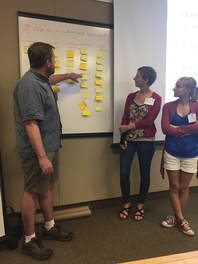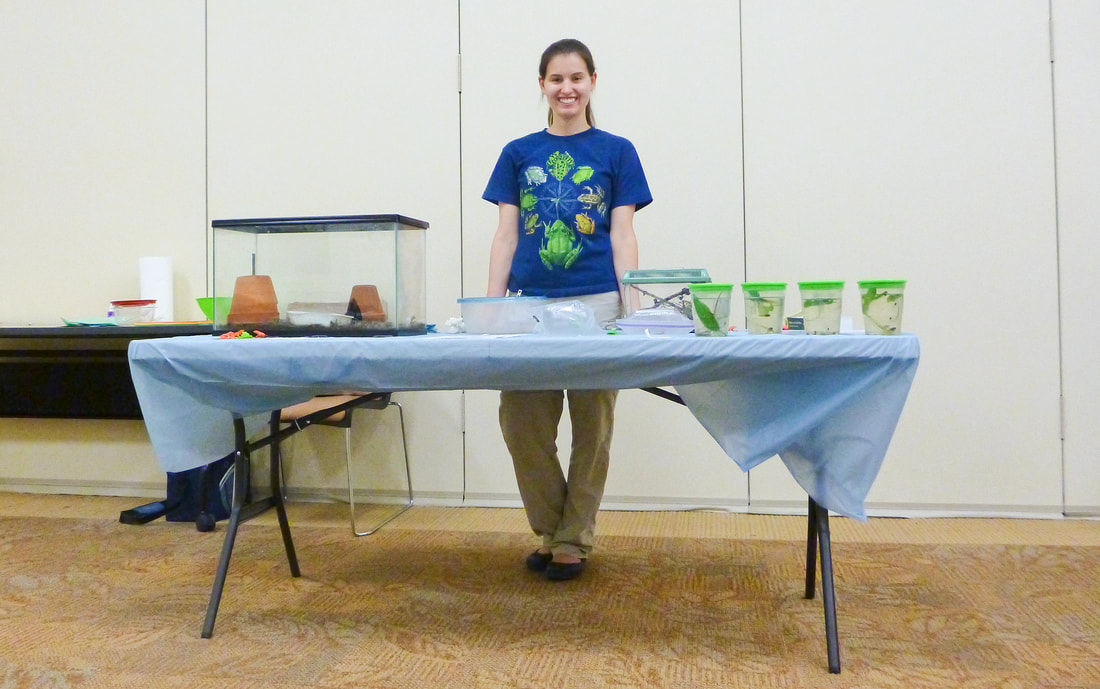ACTIVE PROJECTS
Community Engagement Training for Wildlife Professionals
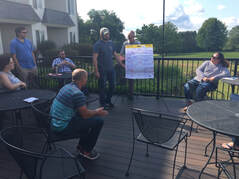
with Barbara Avers (MDNR; MSU FW grad student), Emily Pomeranz (MDNR), and Diane Doberneck (MSU faculty)
Engagement of stakeholders is increasingly recognized as an important component of biodiversity conservation and natural resource management. Lack of community-engagement professional development opportunities for wildlife professionals can limit the frequency and effectiveness of stakeholder engagement. To build engagement capacity, staff at the Michigan Department of Natural Resources (MDNR) Wildlife Division and faculty at Michigan State University have partnered since 2017 to offer a week-long basic community-engagement certificate and a two-day advanced community-engagement certificate for state wildlife agency professionals in Michigan. Each year between approximately 15-20 individuals participate in either program. We have presented on this effort at various conferences and prepared some resources (here).
Engagement of stakeholders is increasingly recognized as an important component of biodiversity conservation and natural resource management. Lack of community-engagement professional development opportunities for wildlife professionals can limit the frequency and effectiveness of stakeholder engagement. To build engagement capacity, staff at the Michigan Department of Natural Resources (MDNR) Wildlife Division and faculty at Michigan State University have partnered since 2017 to offer a week-long basic community-engagement certificate and a two-day advanced community-engagement certificate for state wildlife agency professionals in Michigan. Each year between approximately 15-20 individuals participate in either program. We have presented on this effort at various conferences and prepared some resources (here).
Building Michigan's Conservation Capacity with Volunteers
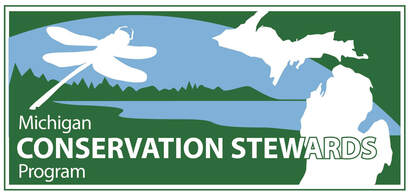
The Michigan Conservation Stewards Program (CSP) is run through MSU Extension and designed for those interested in science-based ecosystem management principles and sharing this knowledge with others to help restore and conserve ecosystems throughout Michigan communities. CSP participants learn about the history of conservation activities in Michigan, ecological principles, ecoregional classifications, and how to make choices to manage our natural resources. In addition to this foundation, participants learn about terrestrial ecosystems (forestlands and grasslands) and aquatic ecosystems (wetlands, lakes and streams) through classroom and in-field instruction.
The CSP is a collaborative effort among community-based volunteers and partners, leading conservation organizations and agencies, and educational institutions throughout Michigan. This collaboration contributes to a statewide network of dedicated, well-prepared and well-organized volunteer conservation stewards who understand, promote, support, actively contribute to and/or lead significant conservation management activities on public and private lands. The mission of the CSP is to deliver high quality, locally-based training opportunities to develop informed Michigan residents who will practice community-based volunteer conservation management activities.
The CSP is a collaborative effort among community-based volunteers and partners, leading conservation organizations and agencies, and educational institutions throughout Michigan. This collaboration contributes to a statewide network of dedicated, well-prepared and well-organized volunteer conservation stewards who understand, promote, support, actively contribute to and/or lead significant conservation management activities on public and private lands. The mission of the CSP is to deliver high quality, locally-based training opportunities to develop informed Michigan residents who will practice community-based volunteer conservation management activities.
Engaging Galápagos Students and Educators in Evolutionary Activities
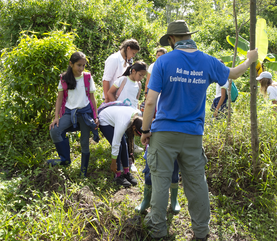
with John G. Phillips, Justin K. Scoggin, Christine E. Parent, Brant G. Miller (all University of Idaho)
Scientists frequently conduct research in field locations but too often collect data and leave without significant engagement with local communities to emphasize the broader scientific impacts and why a specific ecosystem is important to research. To address this deficiency, we worked with Ecuadorian students in the Galápagos Islands where our research group conducts evolutionary studies on the adaptive radiation of land snails. Thus far, our outreach has centered on scientific inquiry and empirical tests of the scientific method while emphasizing the importance of biodiversity of the archipelago. We believe that building a foundation of evolution-based engagement will increase the scientific understanding and appreciation of this historic evolutionary playground in local students as we foster this relationship in the future. Read more about the project in this blog post.
Scientists frequently conduct research in field locations but too often collect data and leave without significant engagement with local communities to emphasize the broader scientific impacts and why a specific ecosystem is important to research. To address this deficiency, we worked with Ecuadorian students in the Galápagos Islands where our research group conducts evolutionary studies on the adaptive radiation of land snails. Thus far, our outreach has centered on scientific inquiry and empirical tests of the scientific method while emphasizing the importance of biodiversity of the archipelago. We believe that building a foundation of evolution-based engagement will increase the scientific understanding and appreciation of this historic evolutionary playground in local students as we foster this relationship in the future. Read more about the project in this blog post.
PAST PROJECTS
Professional Development through Evidence-based Public Engagement
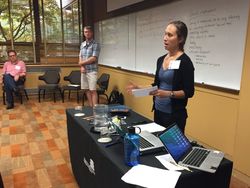
Engaging with the public about science, technology, engineering, and math (STEM) is a professional responsibility, a civic duty, and expected by funding agencies. Engagement involves interactions between STEM professionals and the non-STEM public about STEM topics, often at the intersection of science and society. With funding from the BEACON Center I collaborated with colleagues at UT Austin to organize a series of training workshops for scientists (in-person and virtual). As part of these workshops we collected a wide range of resources that have recently been posted to the 500 Women Scientists website across three pages: Science Communication, Outreach, and Policy.
We also wrote a series of blog posts about these events: 2016 workshop, how BEACONites engage the public, February 2017 workshop, August 2017 workshop, 2018 workshop. At the BEACON Center I regularly engage in science-related events for the public including the Darwin Day Roadshow and science nights at local elementary schools. Many of these opportunities (at BEACON and beyond) are also highlighted on the BEACON website. |
Engaging the Public about Amphibians
|
My love of amphibians led me to organize a variety of events throughout undergraduate and graduate school. In Florida, I was involved with the E. O. Wilson Biophilia Center. This amazing environmental education engages 4th and 7th students as part of a curriculum aligned with the New Florida State Standards. In addition to engaging with the students on these classroom visits, I led special events like 'Frog Friday' with a variety of stations for families to visit and learn about frogs in Florida.
In Michigan, I am working with local high schools and plan to engage nature centers in citizen science projects in salamander research through SPARCnet. |
